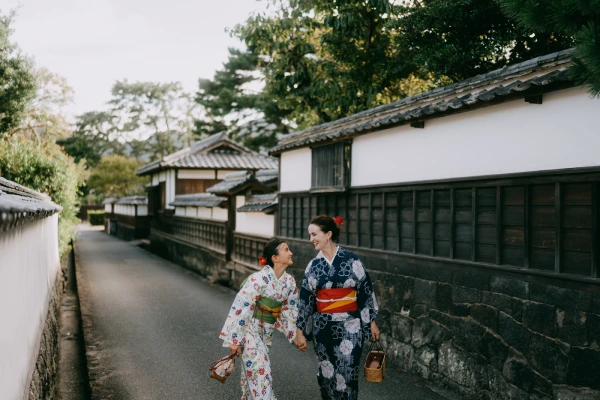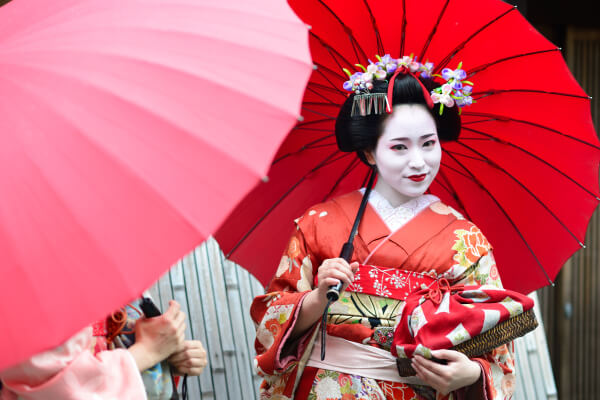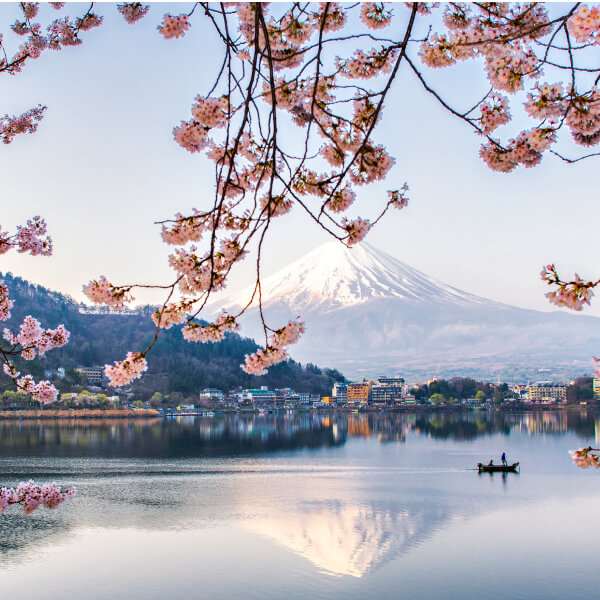With so much to see and do, we’ve rounded up some handy tips on what you need to know before travelling to Japan from Australia.
Visiting Japan from Australia
Our obsession with Japan was not just a summer fling. New data has found that Japan has been one of the top destinations for Australians and its popularity has grown in recent years.
Whether you’re a seasoned traveller or a first-timer, we’ll cover some essentials for your Japan jaunt, including entry requirements, health and safety, and more.
Japan entry requirements from Australia
Do I need a visa?
No, you don’t. Australians are eligible for Japan's visa exemption scheme for short-stay tourism and business travel. So you can travel visa-free on stays less than 90 days. However, remember to check that your passport is valid for at least six months before travelling. See the Embassy of Japan in Australia website for more information (including eligibility and required documents).
Non-Australian passport holders
As of April 2024, regular passport holders from 71 countries visiting Japan for tourism purposes do not require a visa for short-term stays. Find out if your passport is from a country or region that is exempted at Japan’s Ministry of Foreign Affairs website.
As of 29th April 2023, proof of vaccination and negative PCR test results are no longer required for entry into Japan.
Can I bring my medication to Japan?
Japan has strict rules around the type of medication you can bring into the country. Some cold and flu medications, for example, as well as ingredients in ADHD medication may be banned from entering the country.
If you plan to pack medications for your Japan travels from Australia, make sure you check advice from the Ministry of Health, Labour and Welfare of Japan before leaving.
Money Matters
Currency
While we can’t give you an exact budget breakdown for your travels, we can give you a few things to consider. With a little planning, a visit to Japan can be very reasonable and even budget-friendly.
Payment methods
While Japan is gradually becoming more card-friendly, cash is still king in many places, so it’s always a good idea to carry some money with you for convenience. Since everything from 1 yen to 500 yen (about AU$5) are coins, bring a coin purse with you, trust us.
Credit cards are reliable for hotels, department stores, certain restaurants and even the four major convenience stores (7-Eleven, Ministop, Lawson and Family Mart) - yes, we checked!
It’s always advisable to inform your bank of your travel plans to prevent your card from being blocked due to overseas purchases. Organising prepaid travel cards with low or no fees is a great way to avoid being hit with pesky overseas transaction fees from your Australian bank.
Travel insurance
While health insurance is not mandatory for visitors to Japan, SmartTraveller strongly recommends purchasing travel insurance with adequate coverage and services that include expenses related to COVID-19 before you travel.
Japan is one of the safest countries in the world, with an extremely low crime rate. It’s common for locals to leave their doors unlocked, children are perfectly safe travelling on the subway by themselves.
Japan is susceptible to earthquakes and tsunamis, with the most activity occurring between July and September. Be sure to check travel alerts regularly to stay across forecasted weather events or warnings.
In winter the country can also experience heavy snowfall and low temperatures. So travellers should always wear protective gear, only visit safe areas when travelling for skiing and snowboarding and consider adding our skiing and snowboarding cover.
The 2011 Fukushima disaster has left an Exclusion Zone with high radiation, but thanks to decontamination efforts and falling radiation rates, surrounding areas now have safe radiation levels comparable to major cities around the world. However, it’s always a good idea to research the potential short and long-term health impacts of visiting this area.
Finally, be aware that Japanese encephalitis is active in certain rural parts of the country, and measles and rubella outbreaks have been reported in recent years, according to SmartTraveller, make sure your vaccinations are all up to date before visiting Japan from Australia.
Where to travel in Japan?
With so much to see, it's impossible to do Japan justice with just one visit which is why it calls for repeat visits for first-timers. We’ve summarised our favourite places below but you can always discover more Japan highlights or go beyond tourist hotspots and explore some of Japan’s Hidden Gems.
Tokyo - Best for contemporary culture
Tokyo is Japan’s hub for modern art, architecture, pop culture, shopping, and dining. Yet, it’s the city's vast, ever-evolving landscape that captivates most. With its eclectic mix of districts, each visit to Tokyo offers a unique experience.
Planning tip: Book early for sumo, kabuki, and Giants baseball games, typically available one to two months ahead. Also, plan visits to the Imperial Palace, Team Lab and Ghibli Museum (way, way) in advance.
Kyoto - Best for traditional experiences
Kyoto served as Japan's imperial capital for over a millennium and boasts over a thousand temples. Highlights include the golden Kinkaku-ji pavilion and the serene Ryōan-ji rock garden.
Beyond temples, immerse yourself in Kyoto's traditional tea culture at elegant teahouses, experience geisha performances, and savour kaiseki, Japan's exquisite haute cuisine.
Hiroshima - Best for reflection
Lined with scenic, leafy boulevards, a visit to Hiroshima will give you an essential and poignant history lesson. Visiting the Peace Memorial Museum invites contemplation as you learn of the true impact of the atomic bomb on this vibrant city.
However, its resilient spirit, warm locals and delicious cuisine guarantee memorable experiences for visitors.ever-evolving landscape that captivates most. With its eclectic mix of districts, each visit to Tokyo offers a unique experiences for visitors.
Hokkaido - Best for winter exhilaration
Known for its pristine powder snow, Hokkaido is a paradise for skiing and snowboarding enthusiasts, where you can glide through breathtaking snowy landscapes. The island is also known for Hokkaido milk. Smooth, and creamy, it’s used to make special treats like soft serve, butter (which is a topping on ramen), and even milk beer called Bilk!
Osaka - Best for street food and nightlife
The birthplace of takoyaki (grilled octopus dumplings), Osaka excels in delicious street food. Very fitting considering the city’s motto is “kuidaore” - eat until you drop. The city's nightlife dazzles in Dōtombori, known for its vibrant LED displays and animated signage - don’t miss the famous Glico running man.



